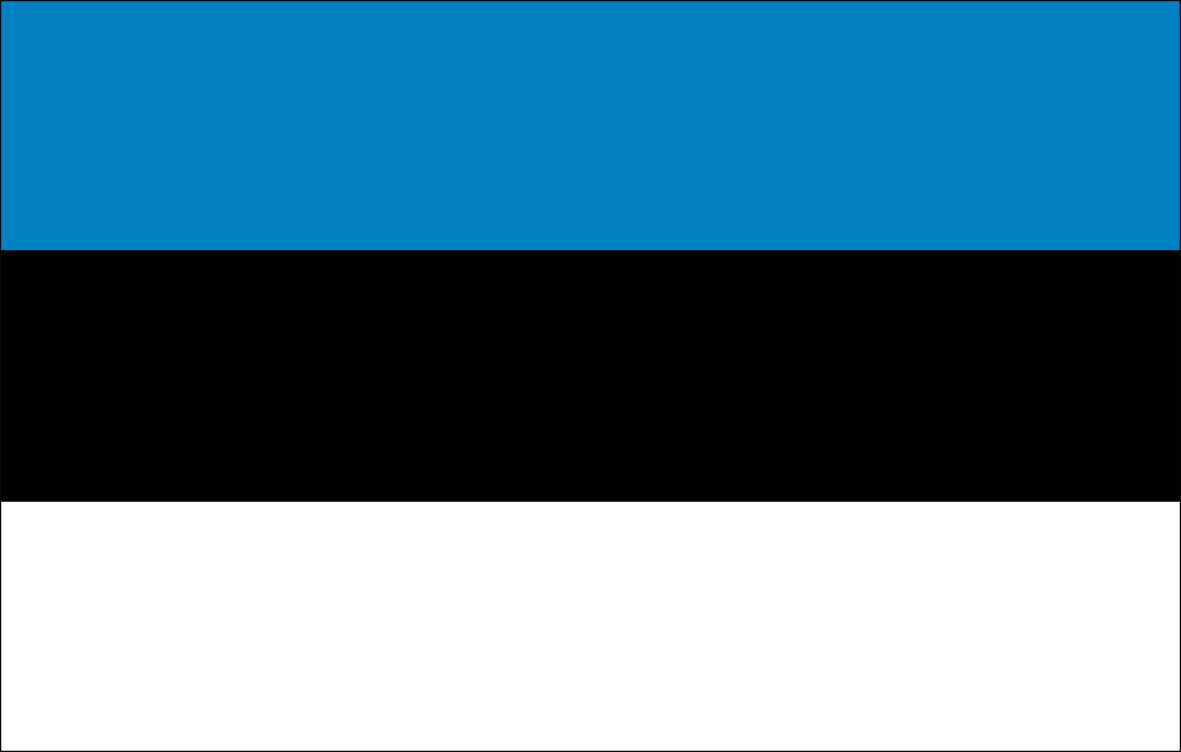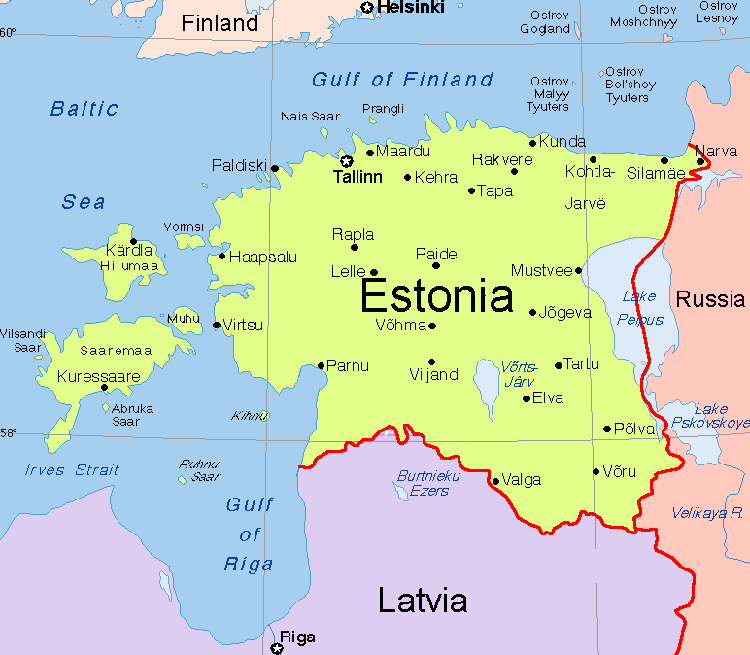
An Estonia Offshore Company offers a European Union (EU) member which does not tax foreigners. If the offshore company’s sole income is earned outside of Estonia, it pays no corporate tax and the foreign owners and shareholders receiving distributions of the profits are not subject to income taxes. This is the only EU member offering tax exemption to foreigners.
Background
Estonia is officially called the Republic of Estonia and is located in Northern Europe’s Baltic region. Estonia closely resembles Finland in language and culture. Denmark and Sweden dominated Estonia in its early history. In 1920, Estonia was recognized as independent. However, the Russians occupied the country after World War II when it became part of the Soviet Union until independence was gained in 1991.
Its political system is described as a “unitary parliamentary constitutional republic” with a one house legislature, a prime minister, and a president. Estonia joined the European Union (EU) in 2004.
Benefits
An Estonia Offshore Company offers these types of benefits:
• Total Foreign Participation: Foreigners can create and own all the shares in a PLC.
• Tax Exempt: Income earner outside of the Estonia is tax free. However, U.S. taxpayers and others subject to global income taxation must report all income to their governments.
• Fast Formation: Registering online takes a few hours while registering with documents using a notary can take 3 days.
• Limited Liability: A shareholder’s liability is limited to the capital shares contribution.
• One Shareholder/One Director: Only one shareholder is required who can also be the sole director for complete control of the PLC.
• Low Minimum Capital: The minimum shares capital is 2,500 Euro.
• EU Member: Estonia is a full member of the European Union (EU).

Estonia Offshore Company Name
An Estonia company must not use a company name already in use by another Estonian legal entity.
A private limited company must use the abbreviation “OÜ” at the end of its name.
Types of Companies
The Commercial Code allows five types of business entities: public limited company, private limited company, limited partnership, general partnership, and a commercial association.
The most popular with foreigners is the “Private Limited Company” (Osaühing or OÜ).
Private Limited Company
A private limited company (PLC) has its share capital (osakapital) separated into individual shares (osad). Their shareholders obtain limited liability.
Limited Liability
Shareholders are not personally liable for the debts and obligations of the company. Their liability is limited to their contributions towards the company’s share capital. The PLC assumes all liabilities for its performance, contracts, and debts with its assets.
Registration
The Commercial Registrar accepts all applications to be registered as a legal company in Estonia.
The following documents must be filed with the Commercial Register:
• Articles of Association;
• Memorandum of Association;
• Bank statement verifying payment of the share capital;
• Owners must provide their full names, mailing address, and amount of contributions;
• Foreign owners must provide their full names, mailing address, and e-mail address.
• Details of any like-kind (non-monetary) contributions along with a professional opinion of value from an auditor;
• Board of directors’ members notarized statement of consent to serve as a member;
• Statement explaining the planned business activities;
• Contact information including mailing address, email address, telephone, fax, etc;
• Any other documents requested by the Registrar.
Public Information with Registrar
The following information will consist of the registry cards of a PLC:
• Company name;
• Company’s address
• Share capital amount;
• Date Memorandum of Association filed;
• Board of directors’ members names and details;
• Fiscal year for the company; and
• Other information required by law.
Companies can register electronically which can take place within a few hours. Or, the PLC can register using a notary which can take up to 3 days.
All records are available to the public including the registry cards and business documents filed.

Minimum Capital
The minimum requirement for its share capital is 2,500 Euro.
The minimum requirement for the nominal value of one share is 1 Euro.
If all of the founders are private individuals with a share capital less than 25,000 Euro, they can declare that the capital contributions not be paid when the company is registered. However, the owners (founders) remain personally liable for all company debts and obligations until the capital contributions are paid in full.
Shareholders
Only one shareholder is required to form a PLC
Shareholders may be legal entities or natural person who reside (or are registered) in any country and do not reside in Estonia.
Directors
Only one director is required to manage PLC who can be a citizen of any country and residing anywhere. Directors do not have to be shareholders.
Every PLC must have a board of directors which represents and manages the company. If only one director exists, the board of directors will only consist of one member. However, if the majority of the board of directors are not Estonian residents, the PLC must provide the Estonian Commercial Registry with a local contact where notices and legal documents can be sent.
The Articles of Association may require the appointment of a supervisor board to oversee the board of directors. This is optional as the law does not require this

Taxes
Estonia has a territorial based corporate tax system. A 100% exemption exists on all foreign earned income.
Income earned inside Estonia by registered companies are only taxed when profits are distributed to owners or shareholders. Retention and reinvestment of profits into the business are not taxed. The corporate tax rate is 20%.
According to the Republic of Estonia Tax and Customs Board website, “a non-resident only pays income tax on Estonian income”. A non-citizen living in another country full time is considered a non-resident.
Dividends paid to a non-resident are not taxable to the non-resident. However, the Estonian company is subject to a corporate tax when paying dividends to non-residents on its Estonian based income.
Estonia only taxes non-resident Estonian companies if:
1. There is Estonian sourced income; or
2. A business presence exists in Estonia (i.e. company sales representative) on a permanent basis.
Estonia has signed tax treaties with over 50 other countries to avoid a double taxation situation between an Estonia company and its owner who resides in another tax treaty country.
No annual tax returns are necessary if no taxes are due.
Note: U.S. taxpayers and everyone subject to worldwide taxes on income must disclose all income to their tax agencies.
Auditor
Small PLC’s do not have to appoint an auditor. But, if they grow and surpass minimum threshold values regarding number of employees, asset value, and turnover; the law requires that an auditor be appointed. Even if these thresholds are not met, if the Articles of Association require the appointment of an auditor then one must be appointed.
Public Records
All documents filed with the Registrar become public records.
Formation Time
A PLC can be formed and registered within one day electronically.
Conclusion
An Estonia Offshore Company has these benefits: foreigners owning all shares and managing the company, one shareholder who can be the only director, no taxes, low minimum share capital, and an EU member.


